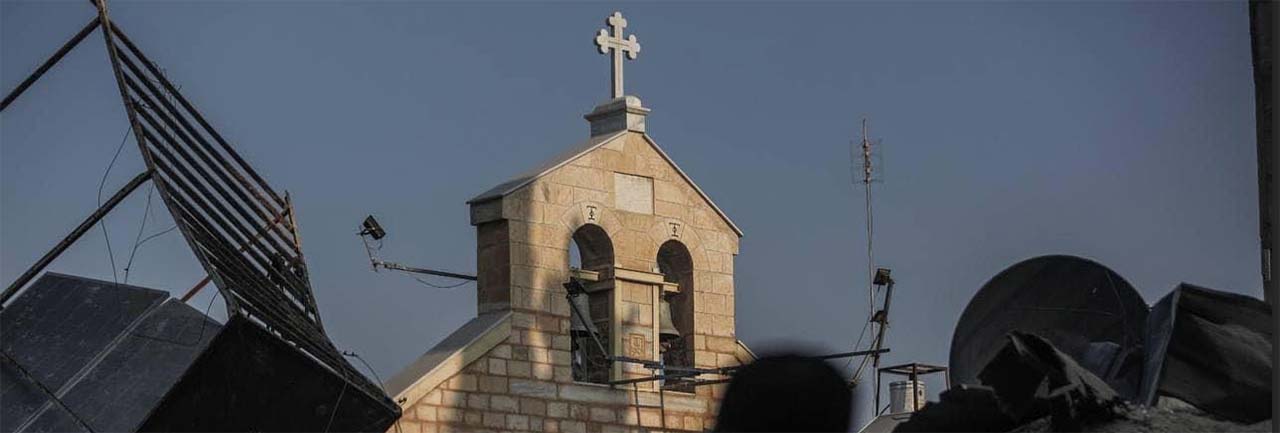

9 Things to Know about Gaza Right Now
With no safe space left, Gaza has become one of the most dangerous places in the world for civilians. For five months, the people of Gaza have been subjected to unrelenting deadly violence from which they have no safe haven. There must be an immediate end to the violence that has destroyed the lives of millions of people. Even as families follow evacuation orders, bombings follow their path. The crisis calls not only for peace, but for the right to exist.
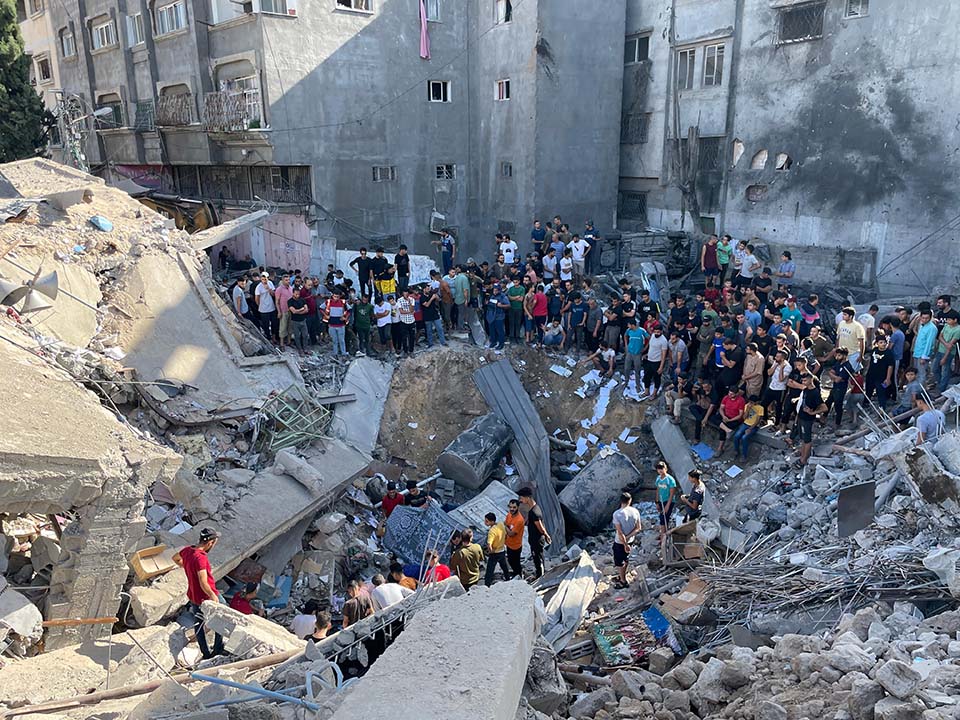
Destruction in Gaza soon after the war started on October 7, 2023.
Photo courtesy of Caritas Jerusalem
Severe access constraints continue to pose a major challenge for people to receive lifesaving aid—especially in northern Gaza, which has been isolated from assistance for months. More aid must get into Gaza as soon as possible, through as many channels as possible, and in quantities that can reach as many people as possible—with less restrictions on access and movement. It is inhumane for families to be deprived of water, food and medical care that is just out of their reach.
The conflict has led to alarming levels of hunger. At least one in four families (more than half a million people) face catastrophic conditions characterized by an extreme lack of food, starvation and exhaustion of coping strategies. Unless the situation improves in the next few months, it is reported that a quarter of the population could be at risk of famine. CRS has provided food assistance to 63,525 families (or more than 381,150 people) in collaboration with the World Food Program, and we are procuring ready-to-eat food rations for thousands of families.
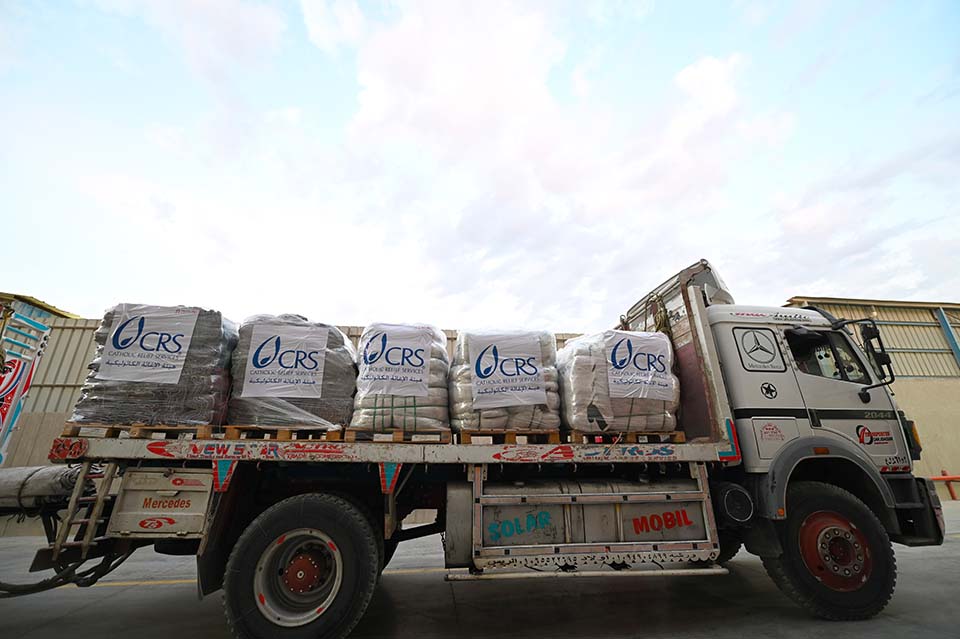
A shipment coordinated by CRS leaves Cairo with emergency supplies for Gazan families displaced by the war.
Photo by Sayed Hassan for CRS.
Despite the challenging context, the provision of lifesaving aid is taking place in Gaza thanks to dedicated, brave Gazans. CRS’ team in Gaza has been providing emergency assistance since the beginning of this crisis, with distributions of food, tarps and tents, bedding, hygiene supplies, and cash assistance reaching more than 381,000 people. Operations are expanding, with the opening of a new office in the war zone and extended programming into two governates. The ability to respond quickly and efficiently is based on years of programming in Gaza, dedicated Gazan staff who are also displaced and grieving loved ones, partnerships with local organizations, and established vendor networks and financial operating systems.
We are flexible to the changing environment, navigating obstacles and tailoring approaches in order to assist people in need. For example, our cash assistance program—which has reached 132,000 people to date—is delivered through previously vetted and contracted vendors. Because many of these vendors are displaced and their shops destroyed, our staff assist them in their new locations, helping them to reconfigure their systems so people can redeem their cash assistance. We’ve also modified the program so the cash can be used for any purpose, rather than limited to certain items. Participants still need to present IDs and a cardless code that is sent to them by SMS, but this adaptation helps to provide people with flexibility, as well as support the local market.
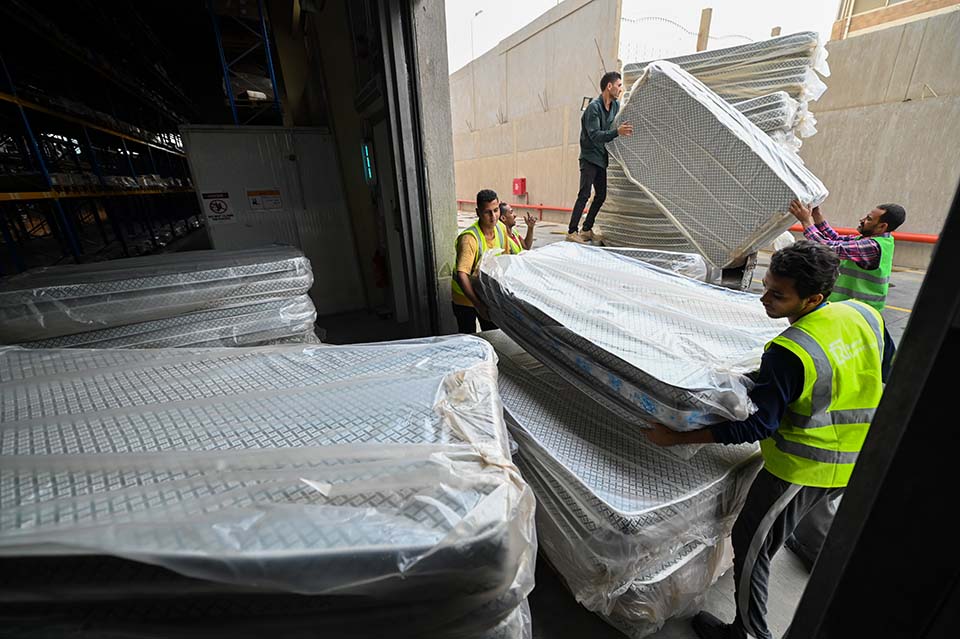
Workers load mattresses onto vehicles which crossed from Egypt into Gaza. Along with blankets and mats, these emergency items provided some relief to Gazan families who fled their homes during the war.
Photo by Sayed Hassan for CRS.
As the crisis extends across borders, the unparalleled presence of the Catholic Church and local partners across the region will be critical for a holistic, long-term response. At a time of immense uncertainty, established presence and trust matters. Decades of CRS work with local partners across Jerusalem, the West Bank and Gaza—as well as Egypt, Jordan and Lebanon—allow for rapid, impactful, flexible programming to meet urgent needs. We also have experience with communities and partners to plan for long-term needs. With our Church and local partners, we have been supporting communities long before this crisis, and will be with them throughout their recovery and healing.
CRS has rigorous mechanisms to ensure accountability. We work closely with the community to identify those in greatest need, as well as evaluate gaps in support. Being rigorous and vigilant in our targeting helps to ensure the inclusion of those who are marginalized, as well as prioritization of those who are truly the most vulnerable. We monitor and track our supplies through to the last mile and establish communication channels so people can reach out to us with any questions or complaint. When we conduct post distribution monitoring, we are able to get a clear picture of any concerns or issues, and course correct as needed.
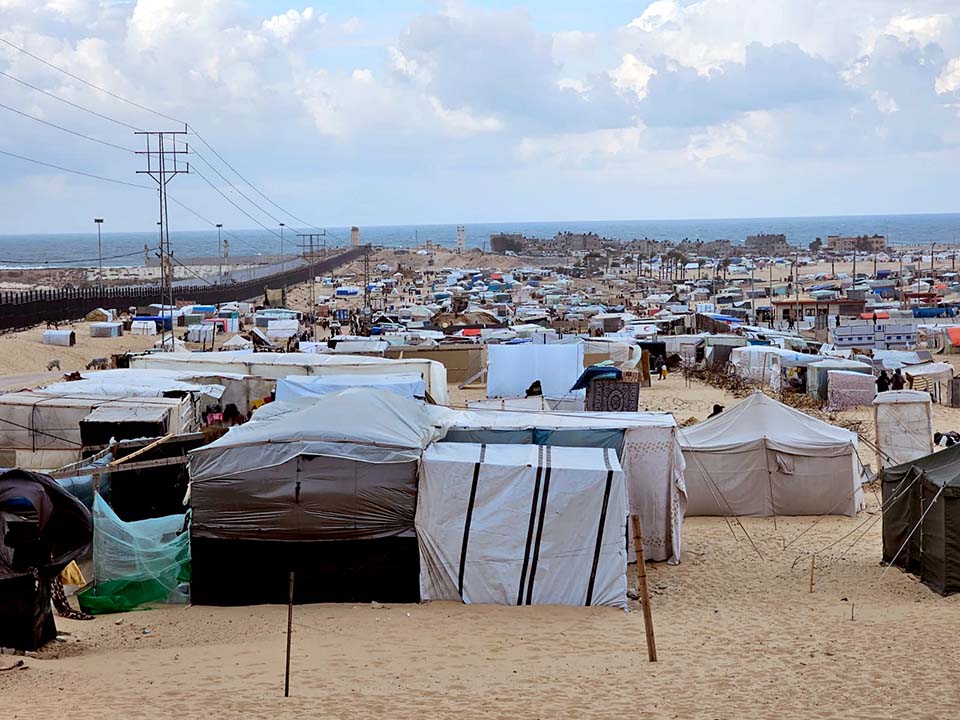
As Gazan families face fewer and fewer options of where they can go to flee the bombings and violence, many are setting up makeshift tents along the Egyptian border to survive.
Photo by CRS staff.
The psychological toll and collective trauma threaten to shape a generation. Beyond meeting people’s physical needs, CRS and partners are prioritizing psychological first aid, caretaker resources and support and referrals for specialized trauma, grief and other counseling and support.
All human life is sacred. CRS continues to grieve for the innocent civilian casualties of violence in Gaza, in Israel and across the Middle East. We need to work towards a shared future where we do not harm each other, and where people can flourish and live in just and peaceful societies. In the words of Pope Francis, there is only one side to take in this conflict—that of peace.

